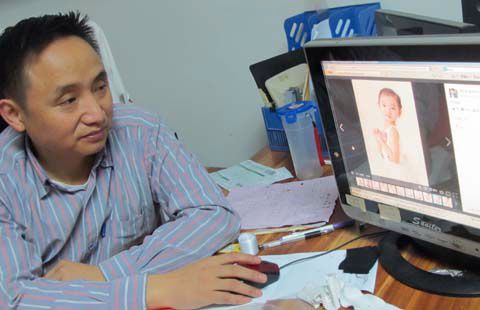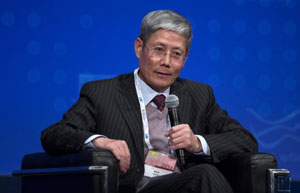Migrant who wants to keep moving
By Joseph Catanzaro and Cai Muyuan (chinadaily.com.cn) Updated: 2014-04-28 16:15Lu is one of Foxconn's roughly 1 million employees on the Chinese mainland, and among the nearly 269 million men and women in China who have left their hometown temporarily or permanently to work in the nation's cities and manufacturing centers.
He is what Foxconn spokesman Liu Kun refers to as the company's "young laborers", the backbone of the workforce it depends on to churn out goods for Apple, HP, Nokia, IBM, Samsung, Amazon, Sony and Dell.
"We rely on our young laborers very much," Liu says.
It's one of the reasons why Liu says Foxconn is sinking money into automating some of the more mundane and menial tasks in its facilities.
In 2012, the world's most populous nation saw an alarming decline of 3.45 million working-age Chinese, the result of a plummeting birthrate and rapidly aging population. Currently, about 14 percent of the population has reached or passed the male retirement age, and conservative projections suggest that by the early 2030s a quarter of China's population will be aged 60 years or older.
Liu says Foxconn has no shortage of applicants, yet.
But the writing is on the wall, and Liu says the company is taking the initiative to prepare for the near future, when workers must be wooed.
"The main reason a lot of young boys and girls dislike being engaged in manufacturing is because manufacturing compared with other industries is very dull," he says. "Robots are the direction of the future to liberate the workers from some very tough and very dull jobs," says Liu.
In the past 10 years, the average national wage for a migrant worker like Lu - the demographic that makes up the bulk of Foxconn's labor force - has increased by 280 percent.
But Liu the spokesman refutes the suggestion that rising overheads from wage hikes in China have now reached a point where automation is financially more viable than cheap human labor.
"The purpose of automation is not to decrease your laborers, but to make laborers want to work for you."
Lu is big, broad-shouldered and thoughtful. He speaks slowly, considering each word.
He believes management has the best intentions for their workers, but says not all policies survive implementation on the factory floor.
And at the end of the day, the nature of his job remains unchanged. He is still punching out 3,000 to 4,000 motherboards for Apple computers during each eight to 10-hour shift, six days a week.
"The work is very boring," he says. "You can't talk to each other, you can't listen to music. If you do, your boss will come and scold you.
"I think it's very depressing. My friends (at Foxconn) think it's very depressing."
- Clock ticking for Australia on a "truly great" China FTA
- CCB beats estimates with 10% profit rise
- Outrider for the delivery brigade
- WH Group seen pricing HK IPO near bottom: IFR
- Self-taught chef cooks up good sales
- In education, vocation is lesson
- The dream and reality for young Chinese workers
- Industrial profits rebound in March

















